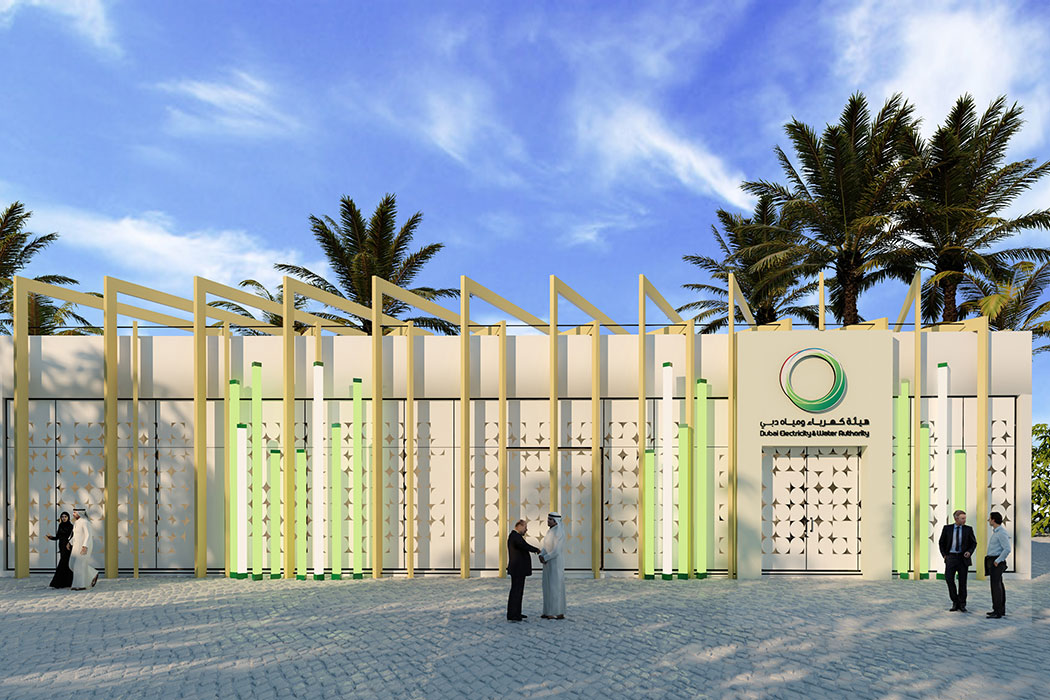Tips for DEWA Transfers for Landlords – In Dubai, landlords must understand how to handle their Dubai Electricity and Water Authority (DEWA) transfers to manage their property. Even if they are renting out a residential apartment, villa, or commercial unit, it is necessary to have a valid DEWA account transfer to enjoy uninterrupted utilities without any stress. In this blog article, we shared the list of tips for DEWA transfers for landlords in Dubai.
Table of Contents
ToggleWe have provided in our comprehensive guide tips for DEWA transfers for landlords in Dubai to ensure compliance, avoid issues, and protect your property investment. These tips are designed to help you understand how Dubai Electricity and Water Authority (DEWA) transfers can save time, money, and hassle.
What is a DEWA Transfer?
A DEWA transfer allows for the change in the registered user of the water and electricity services of a property. The transfer usually happens when a tenant vacates the property and a new tenant takes ownership of the property. This process makes sure that the service and bill are valid for the party responsible for that property.

Why are DEWA Transfers Important to Landlords?
The landlords have a legal and financial responsibility to ensure utilities are registered to the proper party and the process is followed correctly. If a landlord does not correctly take care of the service transfer, it can cause unpaid bills, delays for the new tenant. Additionally, if the account is not registered for DEWA transfer, the Ejari registration can not match with an active utility account and can create administrative issues.
By properly managing the DEWA transfer, landlords can improve the experience for their tenants, creating a smooth move-in and out process and protecting themselves from utility-related issues.
Top Tips for DEWA Transfers for Landlords in Dubai
1. Always Ensure Ejari Registration is Completed First
The tenancy contract must be registered with Ejari before any DEWA transfer can happen. DEWA does not proceed with any account change without an Ejari certificate that matches the property and tenant details. Until this is completed, the tenant cannot apply for utility activation.
Landlords should also verify and make sure that their Ejari certificate is issued in their names. It is recommended to use a professional service, such as Dubai Ejari, to ensure their registration is accurate and delivered promptly so that there are no rejections or delays.
2. Confirm that All Previous Bills are Cleared
It is the responsibility of the landlord to ensure that all DEWA outstanding bills have been cleared by the previous tenant. Unpaid bills can cause a delay in the process of transferring the DEWA utilities account or potentially cause service interruptions or issues in the future.
The previous tenant should be asked for the final bill and payment confirmation before the tenant vacates the property. Holding the security deposit until the final bill is cleared is a common practice and good business practice.
3. Submit the Correct Documentation
You have to submit the proper documents for DEWA to transfer ownership of the electricity and water accounts from the landlord to the tenant. The two main documents that normally require a copy of the tenant’s Emirates ID, an Ejari certificate, and the tenancy contract. Sometimes, a copy of the title deed, the evidence of ownership from the landlord, may also be needed.
A power of attorney may also be required if a property manager or the landlord submits on behalf of the tenant. If you have collected the right documents, there will be no need for you to run around back and forth with DEWA.
4. Guide Your Tenants For the Transfer Process
The tenant (or property manager) is involved in the transfer of utilities. But the landlord can provide some kind of guidance to the tenant to ensure the transfer is done properly. Tenants who are new to Dubai, and if they have never rented anywhere, they can get confused, which can cause a delay in the application process.
You can provide them with a simple checklist to get a DEWA transfer, which will help reduce confusion and let the tenant know what to expect from day one of their lease agreement.
5. Use the DEWA Online Portal for More Benefits
The DEWA’s online services allow you to manage your account more quickly and without hassle. The DEWA online portal and mobile app allow both tenants and landlords to view bill details, request a transfer, make payments, etc.
Encouraging your tenants to register with DEWA online reduces the delays and provides better control over their service status and billing.
6. Clarify the DEWA Security Deposit
New DEWA users will need to pay a refundable security deposit of around AED 2,000 for apartments, AED 4,000 for villas. Landlords should advise tenants to pay this directly to DEWA; tenants need to understand that this charge is not paid to landlords and is separate from the rental agreement.
By clarifying this at the very outset, you can avoid any misunderstandings during the move-in process and allow your tenants to prepare for their payment to DEWA.
7. Verify and Document Move-In and Move-Out Meter Readings
To prevent disputes regarding utility usage, always verify and document the new tenant’s DEWA meter readings during the handover. This will protect both landlords and tenants. In the case of any dispute regarding billing, landlords and tenants will effectively have proof.
You can take it at the end of the move-out meter reading, as well as at the start of the new tenants’ move-in meter reading. This is a perfect way to avoid any future assumptions and miscalculations. Additionally, date and time-stamped photos are ideal as evidence.
8. Ensure That Tenants Request a Final Bill on Exit
When moving out, it is the tenant’s responsibility to request a final bill and DEWA clearance certificate from the landlord. The clearance certifies that all dues are paid and allows the next tenant to transition without issues.
Do not allow the new DEWA registration to occur until the old tenant is fully closed out. Always ask for this clearance before releasing any security deposit.
9. Use Professionals for Frequent Transfers
If you own multiple properties or have a high turnover, DEWA transfers can become more time-consuming. You can hire a professional service provider like Dubai Ejari to manage the documentation associated with transfers and manage the timelines.
With the help of experts, landlords can concentrate and not have to worry about missing any steps or making errors in the documentation.
10. Keep Updated on DEWA Policies and Contacts
DEWA policies and requirements change with time. Landlords should manage to stay updated by checking the official DEWA news and press releases or simply contacting customer service for updates.
You should also familiarise yourself with the nearest DEWA customer care centres. And keep the DEWA helpline contact ready.
DEWA Transfer Fees for Landlords
| Item | Fee (AED) (Approx.) |
| Security Deposit (Apartment) | 2,000 |
| Security Deposit (Villa) | 4,000 |
| Activation Fee | 100–300 |
| Ejari Registration | 200 |
Common DEWA Transfer Mistakes Landlords Should Not Make
- Submitting incomplete documents or old Ejari certificates.
- Ignoring unpaid bills before transfer.
- Not checking the final meter readings.
- Thinking DEWA transfers will happen automatically.
- Not asking for clearance certificates from tenants moving out.
Avoid the mistakes above, and you will have an easier and more professional experience of managing your properties.
How Dubai Ejari Assists Landlords in DEWA Transfers?
Dubai Ejari has dedicated and knowledgeable staff who assist landlords in completing DEWA transfers. Our staff will ensure that Ejari registrations are done properly, our documentation is on point, and we fulfill all DEWA requirements. Whether you are managing one property or many properties, we will assist you with all your DEWA needs from the beginning to the end.
We can assist with opening new DEWA accounts as well as closing the final bill. We do it all for you to save your precious time and administrative stress.
Wrapping Up
Properly processing DEWA transfers helps to keep your management in order in Dubai. All the points play an important role, such as up-to-date Ejari and verifying final bills to protect your interest, along with providing a flawless transition for your tenants.
After reading the tips for DEWA transfers for landlords, I suggested obtaining the advice of professionals like Dubai Ejari to minimise delays, mitigate risks, and comply with all local utility regulations.
Frequently Asked Questions On Tips for DEWA Transfers for Landlords
1. Can a landlord apply for a DEWA transfer on behalf of the tenant?
Yes, a landlord or property manager can apply for the DEWA transfer, but they will need to have some form of consent, i.e., power of attorney or written consent from the tenant.
2. What happens if a tenant leaves the premises and has not paid their DEWA bill?
The new DEWA application will be blocked until any outstanding bills have been paid. A landlord should always verify and collect the final bill clearance before processing the return of the security deposit.
3. Do I need to register Ejari before processing the DEWA transfer?
Yes, DEWA requires that there be a current Ejari certificate before they can process any type of transfer. The system will not allow you to process the request without an Ejari certificate.
4. How long does the DEWA transfer process take?
Once all documentation is submitted to DEWA, processing usually takes 24-48 hours (not including weekends). You should make sure that there are no errors in the documentation.




